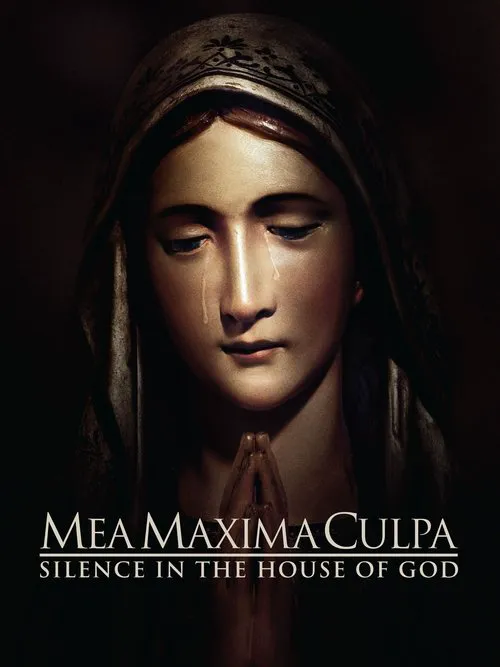Mea Maxima Culpa: Silence in the House of God

Plot
Mea Maxima Culpa: Silence in the House of God is a powerful and thought-provoking documentary that delves into one of the darkest and most disturbing chapters in modern Catholic Church history. Directed by Academy Award-winning filmmaker Alex Gibney, this documentary takes viewers on a journey that spans decades, continents, and institutional silences, ultimately exposing the profound damage inflicted by clergy-led pedophilia on countless lives. The film begins in 1950s America, where a courageous and articulate Wisconsin boy named John Nienstedt – who suffered at the hands of a Catholic priest – becomes one of the first known cases of a child speaking out against clerical abuse. What unfolds is a tragic chronicle of a system that systematically silenced victims, protected perpetrators, and enabled a pervasive culture of abuse. Gibney skillfully unravels the thread of silences, from individual victims' testimonies to the institutional complicity that perpetuated the scandal. The Wisconsin native's courageous voice is not the only one to be heard; Gibney weaves a tapestry of experiences from various individuals who suffered abuse at the hands of Catholic priests. The film features the testimonies of several men – known as the "Four Falls of Buffalo" – each having been sexually abused by Father Lawrence Murphy, a Franciscan priest at a school for the deaf in Wisconsin. One victim recounts the abuse in chilling detail, as Murphy exploited the trust placed in him and manipulated his victims, preying on their vulnerability. As the narrative unfolds, Gibney delves into the internal machinations of the Catholic Church, exposing bureaucratic obfuscations, clerical evasions, and outright denials of the mounting evidence. The film highlights cases of abuse in multiple countries, from Ireland to Germany, and from the United States to Australia. These stories, although harrowing, form a disturbing mosaic that paints a picture of systemic, international corruption. One of the most shocking aspects of Mea Maxima Culpa is its portrayal of the Church's deliberate attempt to erase and conceal evidence of abuse. Gibney chronicles instances where internal church documents, detailing allegations of pedophilia, were shredded, hidden, or destroyed. The documentary also explores the role of powerful individuals within the Church hierarchy, including high-ranking Cardinals and Archbishops, who were aware of the abuse and deliberately chose to conceal it. In a shocking twist, Gibney reveals the involvement of prominent clergy in the systematic cover-up, often using a Byzantine vocabulary of euphemisms to describe their actions. As the investigation extends to the Vatican, the documentary's focus shifts to the internal machinations of the Holy See. Gibney sheds light on the secretive and isolated environment within the Vatican, where clerics often operate with impunity. Through interviews with high-ranking Church officials and experts, Gibney reveals the culture of secrecy and loyalty that pervades the institution, which often prioritizes defending the Church's image over the welfare of its victims. Gibney's meticulous research and commitment to telling this difficult story result in a documentary that is both disturbing and informative. Mea Maxima Culpa offers a critical examination of the Catholic Church's response to the abuse, emphasizing the institutional failures and clerical corruption that enabled and perpetuated these heinous crimes. The film is not only a tribute to the courage of victims but also a powerful critique of the Church's accountability and commitment to justice. Ultimately, Mea Maxima Culpa: Silence in the House of God is a necessary and unflinching portrait of a dark chapter in the history of a revered institution. Gibney's groundbreaking work shines a spotlight on a global crisis that demands immediate attention and action. As the Church continues to grapple with this crisis, Alex Gibney's documentary provides a searing indictment of the institution's response, serving as a powerful reminder of the need for transparency, accountability, and genuine reform.
Reviews
Recommendations



